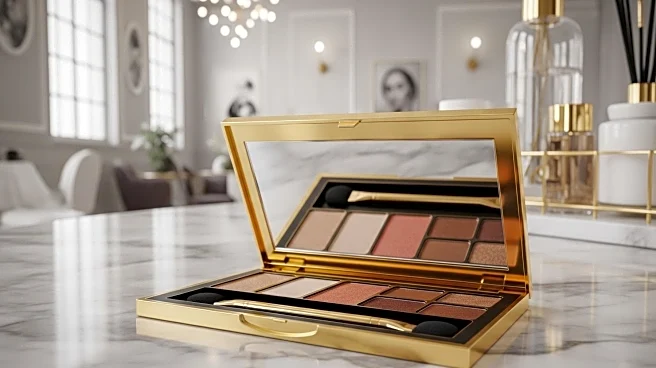What's Happening?
L’Oréal SA has been identified as a potential investor in Giorgio Armani's business, specifically interested in its profitable beauty arm. Following Armani's recent passing, his will named L’Oréal among three preferred bidders for an initial 15 percent stake in Giorgio Armani SpA. The other bidders include LVMH Moët Hennessy Louis Vuitton SE and EssilorLuxottica SA. The sale process is expected to be completed within 18 months, with the possibility for the buyer to increase their stake to a majority after three years. L’Oréal, which holds a license to market Armani's fragrance, makeup, and skincare products until 2050, is considering the sale process but remains focused on its core beauty strategy.
Why It's Important?
The potential acquisition of Armani's beauty business by L’Oréal could significantly impact the luxury beauty market. Armani's beauty license reportedly generated €1.5 billion in revenue last year, representing a substantial portion of L’Oréal's luxury division sales. This move could strengthen L’Oréal's position in the high-end cosmetics sector, allowing it to compete more effectively with rivals like LVMH. The acquisition would also align with L’Oréal's strategy of expanding its luxury beauty offerings, potentially leading to increased market share and influence in the global beauty industry.
What's Next?
As the sale process unfolds, L’Oréal will assess its options regarding the Armani stake. If successful, L’Oréal may choose to license out Armani's fashion segment, similar to Estée Lauder's strategy with Tom Ford. Meanwhile, EssilorLuxottica, another potential bidder, could also surprise the market with its interest in Armani, following its acquisition of Supreme. The outcome of this stake sale could reshape the competitive landscape in the luxury beauty and fashion sectors.
Beyond the Headlines
The sale of Armani's stake raises questions about the future direction of the brand and its alignment with potential buyers. Ethical considerations regarding brand identity and legacy preservation may influence the decision-making process. Additionally, the involvement of major players like L’Oréal and LVMH highlights the ongoing consolidation trend in the luxury industry, which could lead to fewer but more powerful brands dominating the market.









